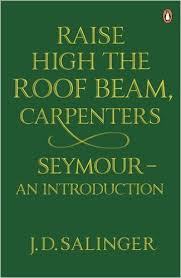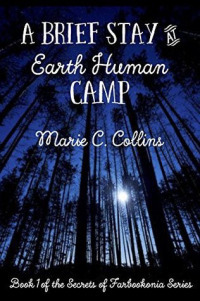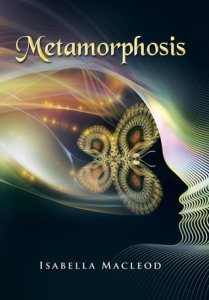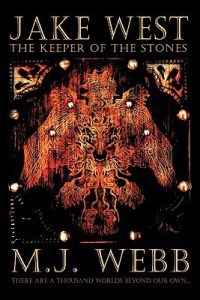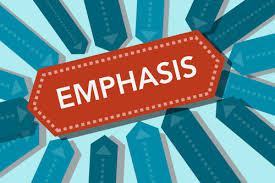Tim Learn's Blog, page 20
November 7, 2015
Chewy Noh Review!!!
November 4, 2015
To Beat a Grammarian: Parentheses
To Beat a Grammarian: Parentheses
I had a friend once, who, when writing letters to me, would add roughly a parenthetical sentence every other line. Some found it annoying. I found it refreshing. It kept me on my toes. In this way, the camp on parentheses, clearly, is divided. Just ask anyone who has ever read Salinger’s Seymour, an Introduction.
The point is: not many people use it, except for its most basic use. However, it can be quite entertaining if done well. So let’s get to it.
Parentheses: to enclose text that is meant as a side note, or is considered extra but not needed information.
Teaching here in Korea, I’ve noticed some people take this to heart. When reading, should they encounter a set of parentheses, they just skip over it. After all, didn’t the definition say, “…not needed information.” Isn’t that just a euphemism for ‘trash?’
I hope not. But sadly, this is the way it works. In fact, many editors and such have gone so far as to want the parentheses thrown out. Outrageous—yes! Uncalled for—maybe no. As for myself, I have no ability with them, but it doesn’t mean I’d like to see them exiled. Maybe, that’s just me. Nonetheless, here we go.
A set of parentheses should be used for added info, like this:
Ex.1 The National Rifle Association (NRA) has declared guns awesome for settling debts.
Ex.2 When presented with the proposal to ban guns, gun lobbyists said they fight would back. They have guns after all (yikes!).
Ex.3 My gun-totting friend said we need all the firearms possible to protect against criminals yet has never been mugged or been on the violent end of crime. (He is not particularly smart.)
As you can see, in each situation, the parentheses gave us a little extra, whether it be an abbreviation—which may be useful; a personal yet comical aside—which can help lighten the mood; or just too point out what the reader may not fully infer from the prior sentences.
In essence, I’ve heard parentheses are the opposite of the dash. If you keep that in mind, you should do okay.
*To note: When adding a parenthetical phrase to a sentence, make sure you do it right. Example one shows that if it comes mid-sentence, you just toss it in with no added punctuation. Example two points out that if you add a parenthetical sentence within a sentence, then you need no capitalization and an ending punctuation should go outside the markers. Lastly, the third example shows that if the parenthetical phrase is a sentence on its own, then all the needed punctuation is enclosed within the parentheses.
Hope that helped.


November 2, 2015
A Brief Stay at Earth Human Camp
A Brief Stay at Earth Human Camp
(Children’s Sci-fi)
By Marie C. Collins
Rating
Synopsis
Anne and her brother, Atticus, get the biggest shock of their lives when they find out they are half-alien. After that, it doesn’t get much better. Their parents then whisk them off to camp into the lives of many other children—an experience they’ve never had before as their lives up until that point had been spent in isolation, learning all they know from books. As a sinister plot unravels, the two gifted children must learn how to use their powers before everyone ends up dead or worse.
Prose
The one delight of this book was the writing. It was smooth and easy-flowing most of the time with a nice sparkle of vocabulary mixed in.
Though there were some mistakes here and there—especially a repetitive slip-up, switching the letter ‘o’ for a zero—overall, I didn’t find it too bothersome to the flow or story.
Characters
As stated before, the two main characters are Anne and Atticus. Both of their names are clearly derived from literary figures as the children were heavily raised on the classics. This is even more apparent when their father gives them sidekicks resembling Tinker bell and Huck Finn. And though I found our protagonists loveable if not overly naïve at times, their little robotical, literary helpers weren’t. Both Huck and Tink annoyed me endlessly and above all could’ve been cut out to greatly help the book.
As for the other characters, there were quite a few I enjoyed, and even though the antagonist was and still at the end nothing more than rumors or lightly named, I still found them okay as well.
Structure
Here’s where the problems start.
First, there is little to no inciting incident beyond a quick mention by the parents, saying, “Something has happened. Something dangerous. We’re going to hide you in camp to keep you safe.” No mention of what happened or why it’s dangerous—two key elements to draw in readers. Because of this, I found little pulling me forward to read.
Second, I don’t understand at all how in the beginning, both Anne and Atticus are raised like normal human children, getting their fill of normal human culture from all the books read to them and by them—to the next minute, their parents telling them they are half-farbookian and somehow they lose all their humanity. It makes no sense! And yet, that’s what happens. Finding themselves dumped in a human camp, they have no idea how to act and seem to be lacking any knowledge at all regarding to being human. They study the others as if they themselves are one hundred percent alien, and not half. For the first part of the book, this frustrated me to no end. But that wasn’t all.
The first part was all loaded down in the extreme minutia of their first day. I’m serious! After the first ten percent were we get large info dumps about the kids’ farbookian powers and history, they finally get to camp and run through each encounter and event of the day for the next forty percent of the book. They meet some kids that become enemies, then they play, then the enemies do something horrible for no reason, then they play, then the enemies come again. It happens over and over, and gets tiring fast.
All of this is sad because finally by around the halfway mark, the plot decides to join us in what could’ve been an interesting book. Sadly, the author crams all the juicy stuff into the end half, and she really does cram it in. Sometimes, it is overwhelming how much stuff you have to take in. Had this information been delved out slowly over the course of the book, it would’ve been a far better and smoother read.
Overall
I wish I could give it a higher score. The end had all the parts of a good read shoved into it like an over-crowded kid’s closet packed with toys. On top of that, the protagonists were interesting and loveable with enough mystery in the last half to make it compelling. Unfortunately, the whole botched first half ruined it. Supposedly, there will be a second book. I hope in this one the author takes her time, focusing on the plot more to get it right than ridiculous situations and characters.
Buy it, here.
Check out her website, here.


October 27, 2015
To Beat a Grammarian: Dashes
To Beat a Grammarian: Dashes
With this punctuation mark, I must make a confession: it tends to be one of my favorite ones, and…I overuse it a bit. For this reason, when editing, I examine my dashes carefully. But they are so wonderful. So let’s get started.
1) Emphasis
This should be clear to anyone who has ever read or used a dash before. It creates focus and attention in written form that usually need to be spoken out loud to convey. For example:
I’ve loved you—and only you—since we were children.
Now what’s important is to compare it to when commas were used. Take a look:
I loved you, and only you, since we were children.
As you can see, there is a markedly different feel to the sentences. This is an extremely useful tool for writers to draw attention to specific words or ideas and is most often present in dialogue. As that is the case, let’s look at the next use of dashes.
2) Interruption or switching to a different subject matter
Whenever a subject abruptly changes, writers toss in a dash to show the suddenness of the event. Most notably, it is used in speech, but should you be writing a first person narrative, this may come up in their ramblings as well. Here we are:
“Joan, you have to listen to me! I didn’t want—”
“I don’t care what you wanted! You didn’t think about me at all!” (Interruption)
or
“I really just—I think we need a break from each other…to see where things are going.” (Subject Change)
You might be confused. In both examples above, the dash interjected into some kind of growing thought that was then cut short. True. And in both cases, the dashed off section found itself with more emphasis, so, yes, this kind of works both ways, as emphasis and interruption. But you can see the hidden power in it, which is also why it shouldn’t be used too often (like I’ve been known to do). When done too often, it weakens what follows, and as a writer, you never want to pull your punches or wear yourself out.
Also, I’d like to note that in the second example, we see the dash and the ellipses. I did this on purpose for you to see how they essentially act as opposites. While the dash highlights, the ellipses downplays, marking something off as if a side note. But more on that later.
3) Lists
As with all punctuation marks, the dash can be an ad hoc tool for clarification. We throw it in to remove a part of one sentence that is clunky or jumbled. Take a look below.
I had a lot of work, cleaning my room, vacuuming, and doing the dishes, all before my wife got home.
The clutter of gerunds and commas following the word ‘work’ can be a bit much and might throw off the flow of the author’s writing. For this reason, authors should take note. We don’t like it when our writing becomes to difficult to follow. Hence, we employ the dash. See:
I had a lot of work—cleaning my room, vacuuming, and doing the dishes—all before my wife got home.
Simple, clear, and effective.
*To note: a dash is two hyphens put together in most word processers. Having one is a big no-no, so be careful! On top of this, it is usually used to begin and end a set of words so don’t forget the last dash, like I’ve been prone to do.


October 25, 2015
Metamorphosis
Metamorphosis
(Literary Fiction)
By Isabella MacLeod
Rating
Synopsis
Miranda’s life is thrown into turmoil after being diagnosed with Morgollen’s Syndrome—a rare disease where the body starts producing strange objects from the skin. With it, her life changes quickly, along with her marriage and career.
*Review Note*
I’ve written about this book in a different fashion, throwing out my ‘prose-character-structure’ template. As you read, I hope you will see why. It is impossible to cut this book apart so easily. I am still greatly bothered by it.
The Book
The writing in this book is spectacular! It’s first person, which can be hard. To pull something like that off, you need an original voice, and with the character of Miranda, the author does that. On top of this, she sounds one hundred percent authentic, like someone we’ve met or seen a thousand times before—completely relateable.
That being said, there are some minor errors with the text—missing quotation marks, misspelled words, and such—but all are infrequent and negligible. The story is so gripping that it is easy to overlooking an occasional mistake.
Now we start getting to the hard part.
The author decides to dedicate the first chapter to the disease, and this could be jarring for some readers. I’ve read about such things before—infestations—and it is noted that there is a natural, almost guttural reaction programmed into our brains when encountering such things. We desire to protect our bodies from being infested by parasites and in turn find it revolting, especially pictures. In this way, the first chapter can be jarring, though, luckily there are no pictures. And if this were just a story about that, the book would be okay. But there’s more.
This particular disease, because of its strange symptoms, has not been fully accepted by the medical community at large. Some believe it is a psychological disorder where the patients make up these conditions in a manner tantamount to Munchausen’s. But let me be clear: that is not so. It is a real problem, and it is clear that the author wishes for others to recognize it, which is laudable. But again, if this were the sole drive for this story, that would be great. But there’s still more.
On top of all I’ve already said, it is a story of a woman who is dealing with a failing marriage. She avows to us near the end of the first chapter that she has met a man other than her husband, and as the story proceeds, we see how this family of two children slowly falls apart. The husband and his side of the family believe, like most doctors, that Miranda’s problems are mental and she struggles to prove herself sane. With her disease, we the reader immediately sympathize with her. No one should have to suffer with such bad health, but what makes this book awesome is not that this is just a story about her disease, it’s also about this destroyed relationship.
As much as her husband doesn’t support her with her disease, the marriage was falling apart before she got it. And as it crumbles, you can see how fully dysfunctional both Miranda and her husband are. They both love pointing fingers at the other, saying it’s not me, it’s you, and they work so hard to find validation from friends and family for their side of the story that nothing ever gets solved. And that’s where it’s wonderful—Miranda is just as bad as the husband! But, as we are seeing it from her point of view, we see she fully believes her side of the story, seeing no fault in her actions, but lays it all solely on her husband, which, with the subtle gossip of her being crazy, strengthens the fact that she is such an unreliable narrator.
Added to this, the book is called ‘Metamorphsis.’ This implies change, and yet the only true change in the story is the nose job the narrator notes from time to time as the cause for her sudden increased attention by the males around her. Otherwise, Miranda actually undergoes no change whatsoever. Her character is untarnished, acting always as the ever-so-self-involved, selfish person that she is. It really raises many questions and makes you think if there is more to a person than that thin, flimsy personality we see floating on top.
I usually judge a book by how much it makes me react, by how much it makes me think. This book does that not only with the unreliable narrator and the many torrid affairs she has, but also because her name is Miranda MacLeod. This by itself is not stimulating until you notice that author’s name is Isabella MacLeod. Then combine this with the fact that the main character’s daughter’s name is Isabella, and things get a little complicated. To make matters worse, the web shows very little about the author or the book altogether, leaving a very thick mysterious feel to the whole thing.
So then, why only four and a half stars? I struggled with this greatly. Midway through, I was already set on a five star review…and then the ending came. Sadly, there really is no ending. And after searching the web and corresponding with the author a little bit, there appears to be a sequel in the works. For this reason, I lowered the score. The ending is so abrupt and so unsatisfying that I can’t justify giving it a full five stars. However, this book has had a strong impact on me, and I cannot shake it from my head with ease. And in my thinking, that’s what writing should be like.
To check her book out, click here.
Sadly, there is really little else I could find on the web.


October 21, 2015
To Beat a Grammarian: Commas (Adjective and Noun Clauses)
To Beat a Grammarian: Commas (Adjective and Noun Clauses)
With the mention of the above two clauses, you would believe most people know when and where to put commas, but it can be deceptive. So let’s get started.
1) Adjective Clauses
There are many ways to consider the comma in these situations, and for the most part, it all comes down to whether or not the clause is restrictive or not.
What does that mean?
A restrictive clause is one that acts like a normal adjective clause but is used to provide extra info to clarify the identity of the noun. When this happens, no comma is needed. Still don’t get it? At first, I didn’t either, so check the examples out.
The car that hit your brother drove off.
The car, that was invented over a hundred years ago, is a symbol of the United States.
In example one, the phrase ‘that hit your brother’ is needed to identify the car as the subject. Without it, a lot would be missing. The sentence would merely read: The car drove off. Very different, no? Meanwhile, if we take the adjective clause out of the second example, the sentence would still make sense: The car is a symbol of the United States.
Hopefully, that made sense. I know, it took me a while to wrap my head around it, too. But to make things worse, most every time the word ‘which’ is used in an adjective clause, many writing programs automatically highlight it. For me, Microsoft Word is spitting a green line out at me due to writing it in the sentence above. These programs feel that ‘which’ signifies a non-restrictive clause, which needs a comma at both ends. So be prepared to put your patient hat on, cause it gets annoying, and you may begin to doubt yourself.
2) Noun Clauses
If you really want to know, hard-core grammarians don’t use the layman’s term of noun clause. Of course not! They refer to these phrases as appositive clauses. And so our world gets a little bit harder. Despite this, noun clauses are the least stressful of all.
When you encounter a phrase that reiterates or gives more detail to a prior noun, using another noun to do so, that is what we call a noun phrase. Check out the examples to make sense of it.
Tiffany, my wife, was standing by the man in the corner.
South Korea, the country between China and Japan, has had its fair share of problems.
In both incidences, the phrase sectioned off by commas adds just a little more knowledge or helps clarify who or what the subject is. This can be used for objects as well. The worst mistake I see with this clause is when most people remember the first comma but forget the second. For this reason, please, remember both. Otherwise, you’re bound to get an earful.


October 19, 2015
Jake West The Keeper of the Stones
Jake West The Keeper of the Stones
(Middle Grade Fantasy)
By M.J. Webb
Rating
Synopsis
Digging in his grandfather’s attic, Jake and his best friend, Ben, accidentally open a box that releases an ancient power and awaken another world. Soon, both are thrust into an adventure and an old rivalry between two brothers that are vying for control over the throne.
Prose
For this book, it’s a bit tricky. On the one hand, the author has an amazing use of words and writes a nice tight sentence. That is to say, there were few flaws grammatically.
Despite all of this, there is still something missing. For starters, he tells more than shows. When this happens, my attention drifts, especially when the telling is adjective-laden. Check it out.
Perkinar mine had also fallen in an astonishing feat of bravery and skill. However, by the time the mine was totally subdued and set ablaze…
As you can see, there are nice words in there, but there’s noting palatable for my sense to grab onto. On top of that, it’s in the past perfect sense, which slips it even further away in perspective. And it doesn’t end there. When you shift over to dialogue, you see that a lot of what they say is either awe-struck praise for the two protagonists, or stereotypical of the characters’ roles. To make matters worse, no person ever asks one question—but a thousand questions at once! It’s baffling.
Characters
Here, too, there are problems. The two characters we should love—Jake and Ben—come off unbelievably similar and sound like unintelligent seven year olds most of the time. It’s hard to believe, but they are actually fifteen years old!
As for the two warring brothers, Vantrax, the evil one, feels the most developed. After the love of his life is married off to his brother, Vantrax goes nuts. There is actual justification for his hatred, but then, every time he speaks, he spews the vitriolic banter of a common villain.
Furthermore, every character speaks and acts as if from some middle age novel, which would make sense if this were about the middle ages. However, most of the story takes place in another dimension, clearly not Earth or in the past, yet somehow they speak middle age and use middle-age weapons! I’m not sure where that logic comes from.
Structure
Structure-wise, it wasn’t too bad. Every chapter, for the most part, had events. True, about halfway through, some areas began to drag, but in the beginning, a lot happens and fast. For this reason it wasn’t as bad as it sounds. It moved at a quick enough pace, but…like most new writers, the author quickly began to repeat himself. There were many instances where we hear one character telling us again why he is doing what he is doing.
Added to this, the author gives such extensive info dumps on the characters backgrounds in the beginning that it gets a little overwhelming. If anything, the writer should’ve given us this knowledge slowly through dialog or actual story action. That way, his repetition problem would be cut down on with new, good pieces of the past.
Overall
I did give this story a three. And mainly it was because it read fast, and the text wasn’t necessarily riddled with errors. When that happens, no matter how many other mistakes happen, it does help ease the pain. Nonetheless, there was too much telling and not enough showing, large info dumps in the beginning, and dialogue that needed going over to strengthen. So, all in all, I stand by my score, though I wish I could’ve made it higher.
Check out the book, here.
Check out M.J. Webb’s site, here.


October 17, 2015
Another great review for Chewy 2!!!
October 15, 2015
New Chewy Noh Review!!!
October 14, 2015
To Beat a Grammarian: Commas (Special Words)
To Beat a Grammarian: Commas (Special Words)
Here is where everything gets tricky, and this is why I hate commas and the grammarians that flip their lids over it. With these words—either, too, though, and except—all rules are up in the air. Let me show you.
I don’t want to go either. / I don’t want to go, either.
He can go too. / He can go, too.
I don’t think he should go though. / I don’t think he should go, though.
But everyone is going except him. / But everyone is going, except him.
One sentence has a comma; the other, no. And somehow both are okay. Seriously! This is where a writer’s preference comes into play. You can call it part-style or part-prerogative, but the underlining issue here is actually emphasis and modern usage.
If the sentence is trying to emphasize that someone can’t go, then ‘I don’t think he should go, though,’ would work best. Normally, you wouldn’t have to. It should be noted, though, that if any of these words come mid-sentence, it is customary to surround them with commas. See below.
Everyone, except him, is going.
Or
He, too, can go.
Otherwise, when it comes to style, it is easy to find heavy examples of comma use with these words for any avid reader who has delved into those thick, wordy books of the Victorian era. Back then, overt comma usage was the norm. However, nowadays, we tend to lean a bit more conservative. Either way is okay, really. But the problem arises when style is taken for hard, fast rules.
Like the story of the monk who shut his cat in a box before meditating, only to have all of his students to run out and buy cats to lock up before they meditated, one must be able to separate rule from fashion. Some grammarians have practiced using commas for these words in a particular way for so long that they can’t budge. So be careful and prepared should you ever go head to head with one of these embittered wordsmiths. What might be style to us is unbreakable gospel for them.





